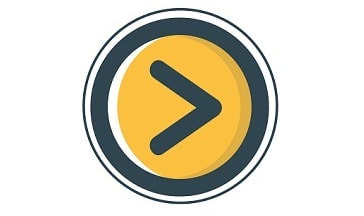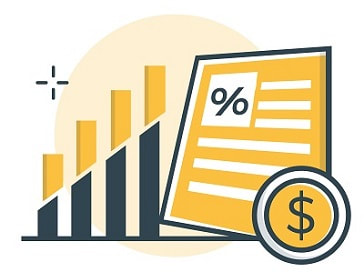Leasehold Property – Pros, Cons and Must-Know Facts
We reveal the best and worst aspects of a leasehold property, compare it to freehold and explain the dangers and everything you need to know
Updated 24 January 2024
Thousands of New Zealanders own a leasehold property, but this type of homeownership has its pros and cons. In this guide, we explain what a leasehold property is, how it differs from ‘freehold’, the pros and cons of leasehold, and must-know facts. We cover:
Looking to compare leasehold with freehold, unit titles and cross lease? Our dedicated Best Type of Property guide covers everything.
- Leasehold - Frequently Asked Questions to help understand your obligation
- Leasehold Property - Pros and Cons
- Understanding the dangers of leasehold properties
- Essential questions to ask about leasehold BEFORE making an offer on a property
Looking to compare leasehold with freehold, unit titles and cross lease? Our dedicated Best Type of Property guide covers everything.
Leasehold vs Freehold explained
When buying a property in New Zealand, it will either be sold as “freehold” or “leasehold”. These terms mean:
- Freehold: Someone who buys freehold owns the property (i.e. physical house) and the land it sits on. This is the most common property type in New Zealand – we estimate 95% of property titles are freehold.
- Leasehold: Someone who buys a leasehold owns the physical property but not the land it sits on. Anyone who owns a leasehold property has to pay ‘rent’ to the freeholder (i.e. person who owns the land underneath their home). A leasehold’s term can be a number of years, decades, centuries or even 1,000 years. Leaseholders must continue to pay the rent charges - how much that will be is reviewed on a regular basis.
Leasehold - Frequently Asked Questions to help understand your rights and obligations
The best way to understand leaseholds is to consider the obligations. In this section, we explain the nature of leaseholds with a series of FAQs.
What type of properties are sold as leasehold?
Leasehold properties, in most cases around New Zealand, tend to be apartments. In some cases, houses will be leasehold, but this is far less common. With a freehold property, there’s only one owner, whereas a leasehold has the property owner and the underlying landowner.
Know this: When you own a leasehold property, you have the right to live in it for a specific period of time. This can be years, decades or centuries. You also have the right to extend the leasehold term with the agreement of the freehold owner. It’s important to understand that during the term of the leasehold, you’re effectively a ‘tenant’ of the freeholder. While they don’t have the right to evict you from your property, if you fail to pay the ground rent, you can ‘forfeit’ your lease meaning the property will be returned to the freeholder. For the life of the leasehold, the property can be bought and sold. When the lease eventually ends, the property is returned to the freeholder.
Know this: When you own a leasehold property, you have the right to live in it for a specific period of time. This can be years, decades or centuries. You also have the right to extend the leasehold term with the agreement of the freehold owner. It’s important to understand that during the term of the leasehold, you’re effectively a ‘tenant’ of the freeholder. While they don’t have the right to evict you from your property, if you fail to pay the ground rent, you can ‘forfeit’ your lease meaning the property will be returned to the freeholder. For the life of the leasehold, the property can be bought and sold. When the lease eventually ends, the property is returned to the freeholder.
What are the obligations for a leasehold?
Every leasehold property owner has to pay an annual ground rent, which can increase over time. What you pay is usually based on the value of the land, which in certain areas of New Zealand have increased significantly since 2010.
How long are leaseholds?
It varies – it could be 10 years, 75 or 500. The longer the lease, the more flexibility you have to arrange a mortgage and/or sell it later on. Buyers tend to favour any property with a leasehold of at least 80 years.
What are my rights and responsibilities as a leaseholder?
When you purchase a leasehold property, you’ll enter into a contract with the freeholder. This will set out your rights and obligations, as well as those of the freeholders. This can include:
Important: The leaseholder-freeholder contract is a legal document and breaching it can cause you to forfeit your ownership of the lease (although this is rare).
- How much you’ll pay as ground rent, and when it’s due
- What you can and can’t alter or renovate on the property, and where you will need permission from the freeholder
- Who is responsible for specific repairs
- The policy on pets, BBQs, balcony use (if applicable) and noise levels
- Body corporate details, including annual charges and rights and responsibilities
Important: The leaseholder-freeholder contract is a legal document and breaching it can cause you to forfeit your ownership of the lease (although this is rare).
What does the body corporate charge cover?
It’s important to know that the freeholder is responsible for the upkeep of the building. However, the costs involved in doing this must be paid by the leaseholder. For this reason, a body corporate usually exists to run an apartment building (which covers upkeep of the common areas like lifts, car parks, as well as maintenance of the roof, exterior walls and stairwells). The freeholder usually appoints the body corporate, and in some cases, they may be a related company. As a leaseholder, you have an obligation to pay the invoices you receive and the right to ask for the summary of expenses and evidence of costs (i.e. receipts). New Zealand law requires that body corporate charges must be “reasonable” – if there is a dispute, the Tenancy Tribunal can assist in resolving the issue.
As I leaseholder, can I renovate or extend my property?
With any modification, you’ll need to ask the permission of the freeholder. This includes a bathroom or kitchen renovation or building out from your existing property (i.e. if you live in a house on leasehold land). While this usually isn’t an issue to obtain, it’s an essential part of the process. As a leaseholder, you are responsible for anything that happens to the property beyond the common areas. For example, the costs of fixing a leaking pipe in your bathroom or flood in your kitchen are your responsibility.
Do I pay for home insurance as a leaseholder?
In most situations, no. The freeholder is responsible for insuring the building (which is paid for by your ongoing service charge). If you want to insure your personal belongings, contents insurance can be a good idea; our guide explains everything you need to know.
Will I be able to get a mortgage on a short lease?
It depends on the length of the lease, the property’s location, asking price and history. Banks focus on minimising risk – if they see the leasehold property as high risk for any reason, they may decline a mortgage application. The banks are concerned with the ability to resell the property should you fail to pay the mortgage – selling a leasehold property can be harder to do, and the value isn’t as predictable as a standard freehold house.
How do I find out what the ground rent and review date is?
You’re best to ask the real estate agent, who will provide the details. If you’ve already had an offer accepted, your conveyancing lawyer will be able to tell you as the details will be in the leasehold contract.
Leasehold Property - Pros and Cons
Pros:
Cons:
Our view: Is leasehold property worth the hassle and risk?
- Leaseholds are cheaper – because you’re not buying the land, the property is more affordable relative to a freehold equivalent. This means for a first home, leasehold can be an attractive option.
Cons:
- Ground rent is regularly reviewed – this means, every 1-21 years, you’ll likely pay more than you did before after the assessment process concludes. This is due to the fact that almost all land in New Zealand increases in value year-on-year, so you’ll pay more to rent the land your property sits on from the freeholder.
- You’ll need a higher deposit (and it can be harder to secure a mortgage) - leasehold properties are generally riskier to lenders given the property sits on land owned by someone else. This means that certain leaseholds can be difficult to get mortgages on.
- If land increases in value, the value of your leasehold doesn’t increase – instead, the risk is you’ll pay higher ground rent.
Our view: Is leasehold property worth the hassle and risk?
- Despite the costs and non-financial obligations leasehold property has, apartments all around New Zealand are, more often than not, sold on a leasehold basis.
- What matters is how long the lease is, and the cost of the ground rent and service charge.
- A cheap property with a short lease and high service charge will unlikely be an attractive investment; with leasehold properties, you need to evaluate all the ongoing costs.
- Before going any further, look at our essential questions to ask about a potential leasehold property - the more you know before buying, the better your decision-making process.
Understanding the dangers of leasehold properties
Ground rent is subject to review every 7-21 years (depending on the lease), and around New Zealand, land prices in good locations continue to increase. Because the ground rent is determined by the value of the land a leasehold property sits on, leaseholders will often end up paying more ground rent after each review.
A recent Stuff article reported on a story where a leasehold property in Auckland’s Scene 3 Apartment building sold off-plan for $780,000. When the owner tried to sell, there were problems - a recent auction saw it passed in at $330,000. The issue is the uncertainty over ground rent costs – leasehold property is risky in this sense. In another example, a property sold originally for $350,000 was on offer for $120,000. $10,000+ per year ground rents are significant red flags to put off property investors (and force existing owners to sell). This Stuff article provides more details around the volume of leasehold property on the market, estimated to be around 0.50% of sales each year.
Getting a mortgage on a leasehold property is more difficult given the resale risk. If you’re looking to buy a leasehold property, it’s essential to ask when the next rent revue is, and how frequently they occur. For example, a property with a low ground rent with its next review in 20 years is likely to be lower risk than a property with a ground rent review in 18 months (which creates a lot of uncertainty).
Some freeholders, such as churches or other religious organisations, have a history of selling the land to leaseholders. But there is no guarantee this will happen, which makes the investment a higher risk than any freehold property.
A recent Stuff article reported on a story where a leasehold property in Auckland’s Scene 3 Apartment building sold off-plan for $780,000. When the owner tried to sell, there were problems - a recent auction saw it passed in at $330,000. The issue is the uncertainty over ground rent costs – leasehold property is risky in this sense. In another example, a property sold originally for $350,000 was on offer for $120,000. $10,000+ per year ground rents are significant red flags to put off property investors (and force existing owners to sell). This Stuff article provides more details around the volume of leasehold property on the market, estimated to be around 0.50% of sales each year.
Getting a mortgage on a leasehold property is more difficult given the resale risk. If you’re looking to buy a leasehold property, it’s essential to ask when the next rent revue is, and how frequently they occur. For example, a property with a low ground rent with its next review in 20 years is likely to be lower risk than a property with a ground rent review in 18 months (which creates a lot of uncertainty).
Some freeholders, such as churches or other religious organisations, have a history of selling the land to leaseholders. But there is no guarantee this will happen, which makes the investment a higher risk than any freehold property.
Essential questions to ask about leasehold BEFORE making an offer on a property:
Before going any further, find out about the leasehold by asking five essential questions. By doing so, you'll know what costs you're likely to pay, the chance of an increased ground rent and what you can (and can't) do. Our suggested questions are:
- When are the ground rent reviews? The more frequent, the higher chance of increased costs.
- How is the value of the land determined? It will usually be considered as bare land or developed land; bare land is (usually) lower in value, hence the ground rent will be lower.
- Who owns the freehold, and what is their reputation? This is very important - if the freeholder has a reputation of increasing ground rents, overcharging leaseholders and/or legal action, they are probably best avoided. A simple Google search of their name will reveal more, but talking to your conveyancing lawyer is also a good idea.
- Is it possible to buy the freehold? And if so, when? If this is a possibility, the leasehold is worth a lot more as it can convert to freehold. It also lowers the risk for lenders.
- Are there restrictions on property use as a leaseholder? This matters if you want to renovate, extend or re-paint etc. Find out what you can and can't do to.
- What is the price history of the property or other similar properties in the same development? This will give you an indication if what they are asking is above-market, or much lower (which may indicate a risk or problem).
Related Guides:
Buying a Home Guides:
Selling a Home Guides:
Buying a Home Guides:
- First Home Buyers Checklist
- Home Buying Glossary
- New Zealand Property Types
- Rateable Value vs Market Value
- Conveyancing
- Tiny Homes in New Zealand
- Buying an Apartment
Selling a Home Guides:





